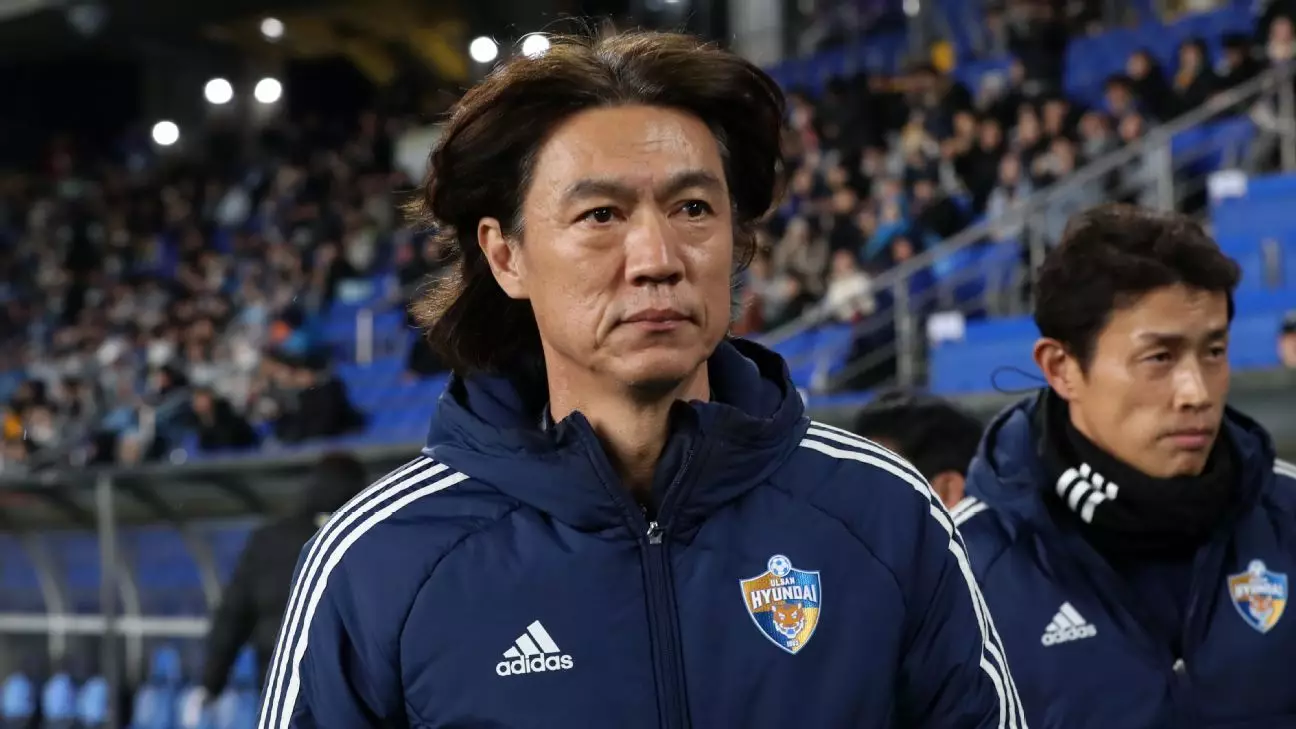With a career spanning over 12 years and 136 caps for the Taegeuk Warriors, Hong Myung-Bo is undeniably a legend of South Korean football. His crowning achievement was leading South Korea to a remarkable fourth-place finish at the 2002 FIFA World Cup, earning him the Bronze Ball in the process. Hong’s prowess on the field cemented his status as one of Asia’s greatest footballers.
Transitioning from being a player to a coach is a significant challenge that many former athletes face. While Hong’s playing career was illustrious, his coaching journey has been met with mixed reactions and results. His recent appointment as South Korea’s national team coach for a second time highlights the complexities and uncertainties of the managerial game in football.
The selection process for South Korea’s national team coach has been met with scrutiny, particularly with the recent appointments of high-profile coaches like Paulo Bento and Jürgen Klinsmann. Bento’s successful stint, leading the team to the last 16 of the World Cup, was followed by Klinsmann, whose leadership faced public dissatisfaction and ultimately led to his dismissal. The KFA’s decision-making in appointing coaches with different backgrounds and approaches reflects a quest for success on the international stage.
Controversies surrounding the selection process have surfaced in the media, particularly with regards to Hong Myung-Bo’s appointment. Reports suggest that Hong initially declined the offer, sparking surprise and skepticism within the footballing community. The abrupt poaching of Hong from his position at Ulsan HD raised concerns about the KFA’s approach to hiring a national team coach.
Hong’s previous stint as South Korea’s national team coach in 2014 ended with underwhelming results at the World Cup. Despite leading the team through a disappointing qualification campaign, Hong faced criticism for the team’s lack of cohesion and poor performance against opponents. The scrutiny of his coaching abilities and decision-making highlighted the challenges of managing a national team on the global stage.
As Hong embarks on his second tenure as South Korea’s national team coach, the focus shifts to the future and the potential for success under his leadership. With a renewed sense of commitment and experience gained over the years, Hong is poised to make a stronger impact this time around. However, questions remain about the selection process and the criteria used by the KFA in appointing national team coaches. The success of South Korea’s national team will ultimately depend on a combination of coaching expertise, player talent, and effective team management.

